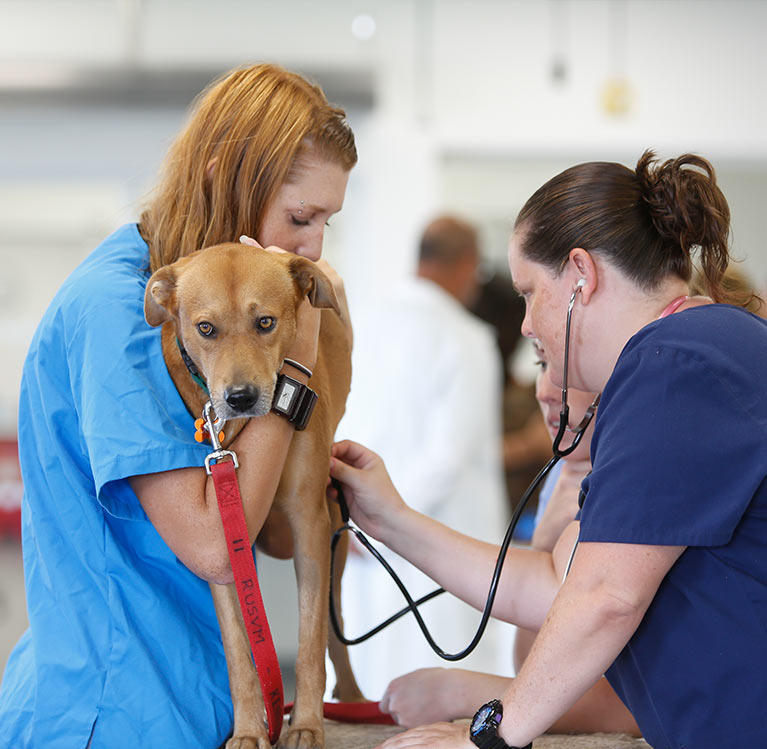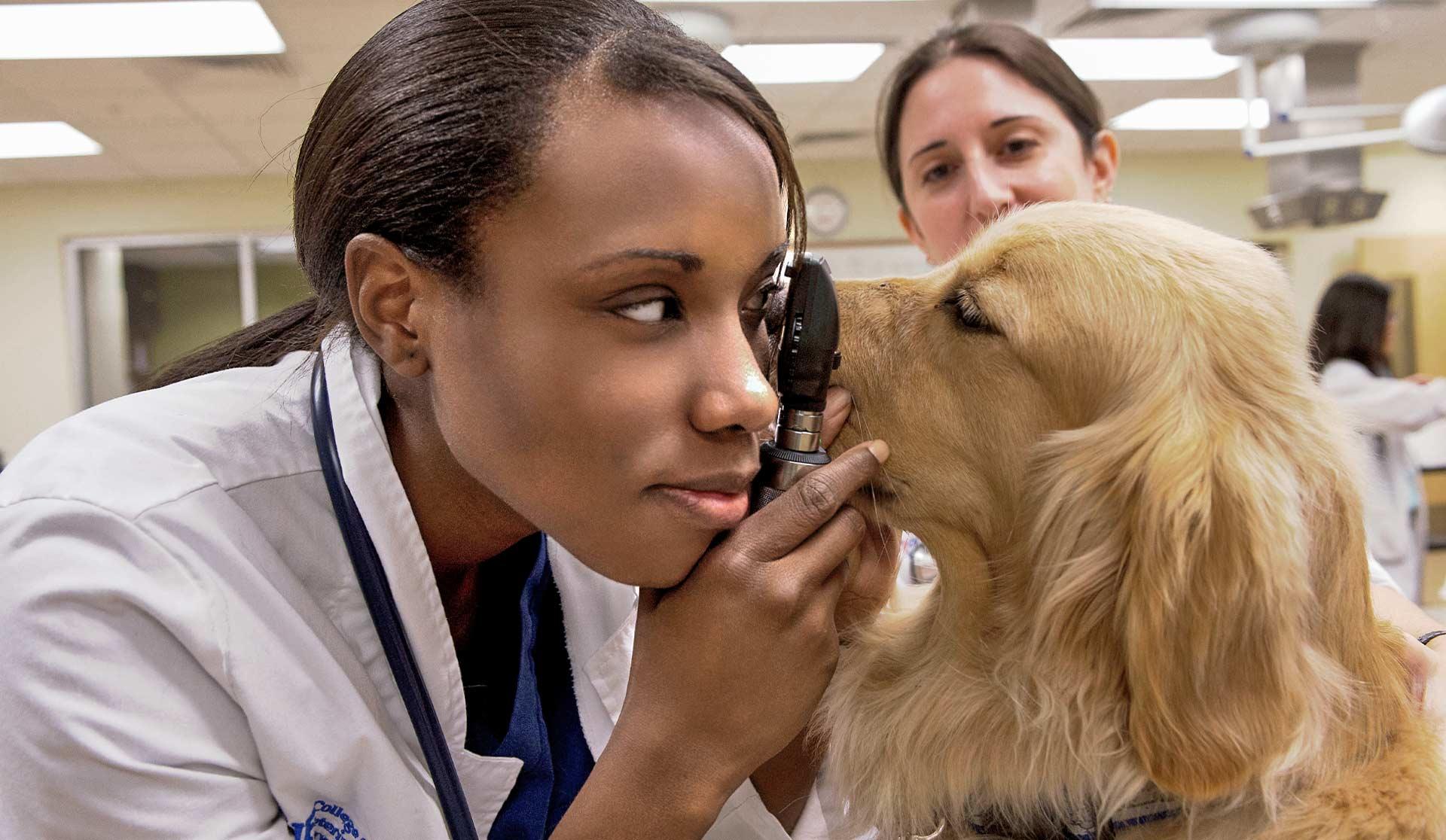What to expect ahead of your pet’s Pet Cancer Surgery
Wiki Article
Comprehensive Overview to the Solutions Provided by a Veterinary Oncologist
Veterinary oncology includes a wide variety of services focused on identifying and treating cancer in pet dogs. Veterinary Oncologist. Oncologists employ sophisticated diagnostic techniques and supply numerous therapy choices tailored to each pet's demands. They also focus on supportive treatment and give beneficial resources for pet dog owners. Understanding these services is essential for making educated choices. What details aspects of vet oncology can notably influence a pet dog's treatment trip?Understanding Vet Oncology
Vet oncology is a customized area concentrated on dealing with and diagnosing cancer cells in pets. This technique incorporates a vast array of methods, from medical therapies such as chemotherapy and immunotherapy to medical interventions focused on getting rid of growths. Vet oncologists are educated to recognize the distinct manifestations of cancer in different species, enabling them to tailor treatment strategies to individual clients.In addition to traditional treatments, vet oncology highlights helpful care, which plays a vital duty in improving the quality of life for afflicted animals. This consists of discomfort monitoring, dietary assistance, and palliative treatment choices. Collaboration with family pet proprietors is important, as they are essential to decision-making concerning their animals' therapy courses. As study advancements, veterinary oncology remains to progress, using new hope and boosted end results for family pets identified with cancer. Generally, this area is essential for addressing the intricacies of cancer cells in buddy animals.
Advanced Diagnostic Techniques
Advanced analysis techniques play an essential role in vet oncology, supplying critical insights right into the presence and level of cancer cells in animals. Imaging modalities such as ultrasound, CT scans, and MRI are commonly utilized to envision lumps and examine their qualities. Furthermore, biopsy procedures are important for obtaining tissue examples, enabling conclusive diagnosis and tailored therapy strategies.Imaging Modalities Utilized
Imaging techniques play a necessary function in the diagnosis and administration of cancer in animals. Vet oncologists utilize different sophisticated imaging methods to examine lump dimension, transition, and presence. Radiography, or X-rays, uses an initial view of bone and breast problems, while ultrasound provides real-time imaging of soft cells, allowing for thorough assessment of inner body organs. Computed tomography (CT) boosts visualization of intricate physiological structures and allows 3D restorations, assisting in specific lump localization. Magnetic vibration imaging (MRI) is very useful for soft cells distinction, specifically in brain lumps. Additionally, nuclear medication strategies such as positron exhaust tomography (PET DOG) help recognize metabolic task within lumps. Collectively, these methods improve analysis precision, leading efficient treatment techniques for oncological people.Biopsy Procedures Explained
Complying with the initial evaluation via imaging modalities, obtaining a conclusive diagnosis often needs tissue sampling via biopsy treatments. Veterinary oncologists make use of various biopsy strategies based on the lump's area and attributes. Great needle desire (FNA) is a minimally invasive technique that draws out cells for cytological assessment, suitable for surface masses. Core needle biopsies offer bigger tissue samples and serve for deeper growths, enabling histopathological evaluation. Surgical biopsies include excising a part or the whole growth, promoting detailed assessment. These treatments not only confirm the existence of cancer but additionally help determine its type and quality, assisting treatment choices. Each biopsy technique is chosen carefully to balance analysis accuracy with patient safety and security and convenience.Therapy Choices for Cancer Cells in Animals
When an animal is diagnosed with cancer cells, a range of treatment choices appear to help enhance and manage the disease lifestyle. Veterinary oncologists commonly suggest a multidisciplinary approach customized to the specific family pet's needs, which might include surgery, radiation treatment, immunotherapy, or alternative treatments.Surgery is commonly employed to eliminate tumors and afflicted tissues, potentially causing full remission sometimes. Radiation therapy intends to target and ruin cancer cells, decreasing tumor size and relieving symptoms - Veterinary Oncologist. Immunotherapy uses the family pet's body immune system to combat cancer a lot more effectively, while alternative therapies could include acupuncture or organic supplements to support overall health
Each treatment alternative lugs its own advantages and threats, and vet oncologists work carefully with pet owners to develop a thorough strategy that lines up with the pet dog's certain diagnosis and the proprietor's dreams. The ultimate goal is to improve the family pet's comfort and lifestyle throughout their cancer cells trip.
Chemotherapy for Pets
Radiation treatment is a typical treatment choice for family pets diagnosed with cancer cells and is usually utilized combined with various other therapies described by veterinary oncologists. This treatment involves the management of specific medicines created to target and destroy cancer cells, therefore decreasing growth size and protecting against the spread of the illness. Vet oncologists customize chemotherapy protocols based on the sort of cancer, the pet's general wellness, and the preferred therapy result.Side results can take place, as these drugs may also influence healthy cells. Typical responses consist of nausea, throwing up, and short-term adjustments in hunger - Veterinary Oncologist. Veterinary oncologists are outfitted to take care of these side effects effectively, making certain the animal's comfort throughout the therapy process. Normal tracking via blood tests and follow-up visits is vital to examine the pet dog's feedback to chemotherapy and make needed changes. Inevitably, radiation treatment can supply considerable advantages, enhancing the lifestyle for pets facing cancer medical diagnoses

Radiation Therapy in Veterinary Medication
Radiation treatment acts as a reliable therapy choice for animals diagnosed with localized tumors, supplying a targeted technique to cancer cells monitoring. This method makes use of high-energy radiation to harm the DNA of cancer cells, preventing their capacity to proliferate. It is particularly valuable for lumps that are not responsive to surgical removal or for instances where surgical procedure may not be viable due to the growth's area.Vet oncologists customize radiation procedures based upon lump place, dimension, and kind, as well as the pet dog's total wellness. Treatment can be delivered using exterior beam of light radiation or brachytherapy, each with distinct advantages. Typically, numerous sessions are required to take full advantage check over here of efficiency while lessening negative effects.
Although family pets might experience short-lived reactions such as skin irritation, the general goal is to reduce tumors and ease signs and symptoms, inevitably improving the pet's diagnosis and high quality of life. As necessary, radiation treatment plays an essential function in comprehensive cancer care.
Palliative Care and Lifestyle
Palliative treatment in vet oncology concentrates on improving the high quality of life for pet dogs encountering terminal health problems, ensuring convenience and self-respect in their last days. This specialized technique prioritizes pain management, symptom control, and psychological support. Vet oncologists assess each animal's private needs, customizing interventions to reduce discomfort and boost general wellness.Strategies might include administering medications for discomfort relief, managing nausea or vomiting, and dealing with various other distressing symptoms. Furthermore, nutritional assistance is often supplied to keep toughness and enhance hunger. The emotional facet of palliative care is just as crucial; developing a calm environment aids minimize stress and anxiety for both family pet and owner.
Eventually, the goal of palliative care is to enable family pets to enjoy their remaining time with as much joy and self-respect as possible. By concentrating on comfort and lifestyle, veterinary oncologists play a vital function in making sure that pets and their family members browse this challenging trip with compassion and understanding.
Assistance for Pet Owners During Treatment

Psychological Advice for Proprietors
Charting the emotional landscape during a pet dog's cancer cells therapy can be a frustrating experience for proprietors. The unpredictability bordering medical diagnosis and diagnosis can cause feelings of stress and anxiety, vulnerability, and despair. Vet oncologists acknowledge the relevance of emotional support and typically supply support to aid proprietors browse this tough trip. Interaction is crucial; going over treatment options and possible outcomes can relieve some worries. Furthermore, offering peace of mind that psychological actions are valid fosters a supportive environment. Several oncology facilities may also suggest support groups or therapy services tailored for pet dog owners, helping with common experiences. Motivating proprietors to prioritize self-care throughout this moment is essential, as their emotional well-being directly influences their animal's comfort and general therapy experience.
Resources and Educational Products
Guiding with the intricacies of a pet dog's cancer treatment can be intimidating for proprietors, making accessibility to trustworthy sources and academic materials essential. Vet oncologists typically supply a range of handouts, sales brochures, and online products that discuss therapy options, prospective side results, and treatment strategies. These sources assist empower and debunk the process pet proprietors to check make enlightened choices. Furthermore, numerous oncology clinics provide accessibility to sustain teams and online forums where proprietors can attach with others dealing with comparable difficulties, promoting a feeling of area. Educational webinars and seminars conducted by veterinary specialists even more improve understanding, guaranteeing that proprietors are well-appointed to browse their pet dog's trip via cancer treatment with confidence and expertise.Often Asked Inquiries
Just How Can I Prepare My Pet for a Vet Oncology Go To?
Preparing a pet dog for a vet oncology go to involves basics celebration medical records, noting symptoms, and making certain the pet fits. A calm behavior and familiar things can aid alleviate anxiety throughout the consultation.What Are the Signs My Pet Dog May Have Cancer Cells?
Signs that a family pet might have cancer consist of unusual fat burning, persistent throwing up or diarrhea, unusual lumps or swellings, lethargy, changes in cravings, trouble breathing, and modifications in actions. Prompt veterinary attention is important.Just How Can I Assistance My Family Pet Emotionally Throughout Treatment?
Supporting a family pet mentally during treatment entails providing comfort, maintaining routines, using mild affection, and ensuring a tranquil environment. Participating in peaceful play and normal friendship aids reduce stress and promotes a feeling of safety.Exist Different Treatments for Pets With Cancer cells?
Alternative treatments for animals with cancer cells include acupuncture, natural treatments, and dietary support. These methods might enhance traditional treatments, advertising overall health. Consulting with a vet is vital for reliable and risk-free assimilation of alternative treatments.What Prices Should I Expect for Vet Oncology Solutions?
The expected costs for veterinary oncology services can differ significantly, commonly influenced by diagnostics, treatments, and ongoing treatment. Family pet owners must get ready for expenses ranging from assessments to specialized treatments, mirroring the complexity of cancer cells monitoring.Partnership with animal owners is vital, as they are essential to decision-making concerning their animals' treatment courses. Each therapy alternative carries its own advantages and dangers, and veterinary oncologists work carefully with pet owners to make a complete plan that lines up with the animal's specific diagnosis and the owner's desires. Pets may experience short-lived responses such as skin irritability, the total objective is to diminish lumps and relieve signs and symptoms, inevitably enhancing the family pet's diagnosis and high quality of life. Assistance for pet owners throughout therapy is essential in guiding with the psychological difficulties connected with an animal's cancer cells medical diagnosis. Preparing an animal for a veterinary oncology see involves event clinical documents, keeping in mind signs and symptoms, and making certain the family pet is comfortable.
Report this wiki page